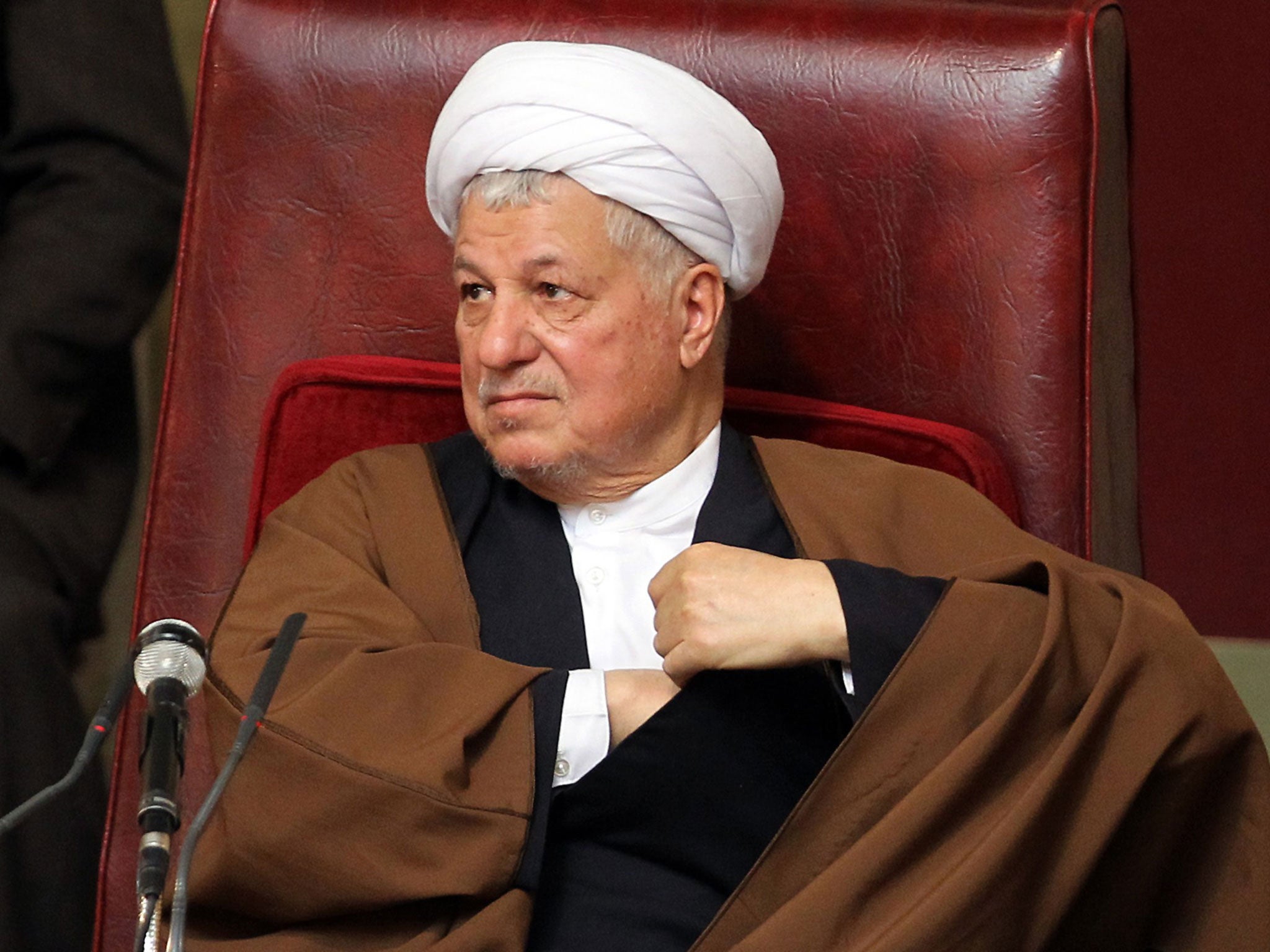Former Iranian President Akbar Rafsanjani 'dies aged 82'

Your support helps us to tell the story
From reproductive rights to climate change to Big Tech, The Independent is on the ground when the story is developing. Whether it's investigating the financials of Elon Musk's pro-Trump PAC or producing our latest documentary, 'The A Word', which shines a light on the American women fighting for reproductive rights, we know how important it is to parse out the facts from the messaging.
At such a critical moment in US history, we need reporters on the ground. Your donation allows us to keep sending journalists to speak to both sides of the story.
The Independent is trusted by Americans across the entire political spectrum. And unlike many other quality news outlets, we choose not to lock Americans out of our reporting and analysis with paywalls. We believe quality journalism should be available to everyone, paid for by those who can afford it.
Your support makes all the difference.Former Iranian president Akbar Hashemi Rafsanjani has died in hospital in Tehran where he was taken after suffering a heart attack on Sunday, state media has reported.
State-run Press TV said Rafsanjani, 82, died despite efforts by doctors to save him.
Residents said a crowd gathered outside the hospital where Rafsanjani was taken in the Tajrish neighbourhood in northern Tehran.
Rafsanjani was an influential figure in Iran, and headed the Expediency Council, a body which is intended to resolve disputes between the parliament and the Guardian Council. He was also a member of the Assembly of Experts, the clerical body that selects the supreme leader, Iran's most powerful figure.
Rafsanjani has been described as "a pillar of the Islamic revolution." His pragmatic policies - economic liberalization, better relations with the West and empowering Iran's elected bodies - appealed to many Iranians but was despised by hardliners.
His death is a big blow to moderates and reformists, depriving them of their most influential supporter in the Islamic establishment.
Since 2009 he and his family have faced criticism over their support for the opposition movement which lost that year's disputed election to former president Mahmoud Ahmadinejad.
Join our commenting forum
Join thought-provoking conversations, follow other Independent readers and see their replies
Comments